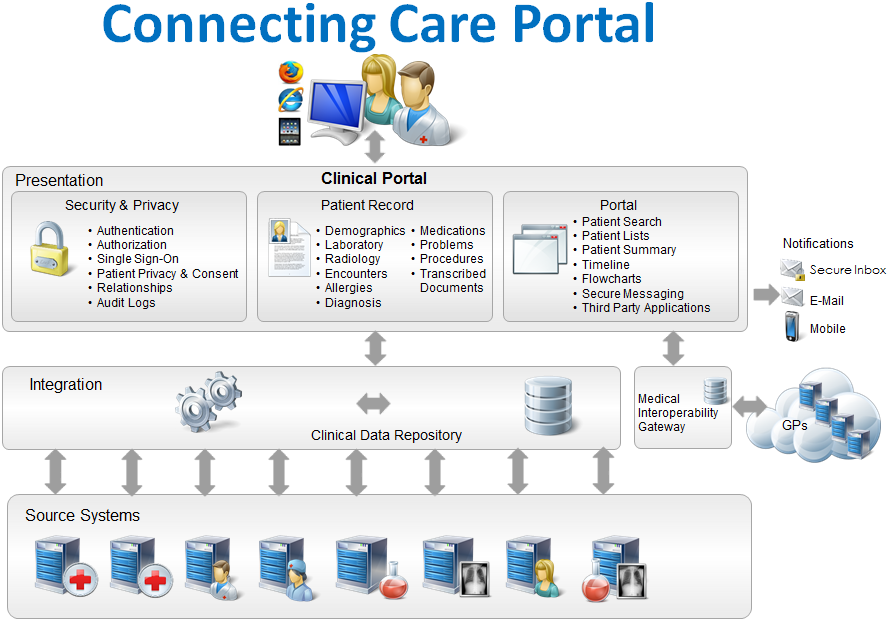Stage one focused on unplanned and urgent care because, despite clear interdependencies between GPs, minor injuries units, out-of-hours providers, community and social care, emergency care and ambulance trusts, their IT systems remain largely unconnected.
What did we deliver? We led the development programme and governance framework, lending expertise in Informatics, Transformation, Finance, Procurement and Communications. Our team directed the work of multiple project workstreams, managed the procurement of a technology partner, and co-ordinated the input of the participating organisations, including acute hospital trusts, GPs, local authorities, community health providers and three clinical commissioning groups. This required us to work flexibly with each organisation’s distinct systems and data management practices, but also to their working preferences and desired level of input. We successfully co-bid for an award from the NHS ‘Safer Hospitals, Safer Wards’ Technology Fund, which led to our appointment as an exemplar for digital care record integration. We delivered stage one of the programme on schedule, providing shared-care records to improve unplanned and urgent care – a QIPP priority for local commissioners.
Deliverables planned for stage two include broader clinician access, joint care planning and mobile access.
How did we add value to the customer? We delivered the first stage of the Connecting Care record programme so that unplanned and urgent care practitioners now benefit from better patient information at the point of care, including the patient’s medications, allergies, diagnoses, progress notes, radiology and pathology reports, referral history, inpatient and outpatient appointments, and end-of-life plans – all at the touch of a button without having to call the patient’s other practitioners. Being able to draw immediately on a patient’s medical and social care history helps clinicians make quicker, more confident decisions and leads to safer and better care. Patient experience is improved as they no longer have to repeat their own information during what can be a stressful situation.
Early analysis shows that the main reasons for using the Connecting Care portal are to check medications, allergies, current conditions, diagnoses and which other agencies are providing care. The analysis also indicates that the portal helped prevent many calls to GPs, reducing pressure on primary care.
Customer Feedback The following quotes came from clinicians, practitioners and pharmacists involved in Stage One: “The introduction of Connecting Care is like the introduction of radios in world war one.” “I would just like to say how incredibly useful Connecting Care is proving to be… it represents a quantum leap for out of hours.”

